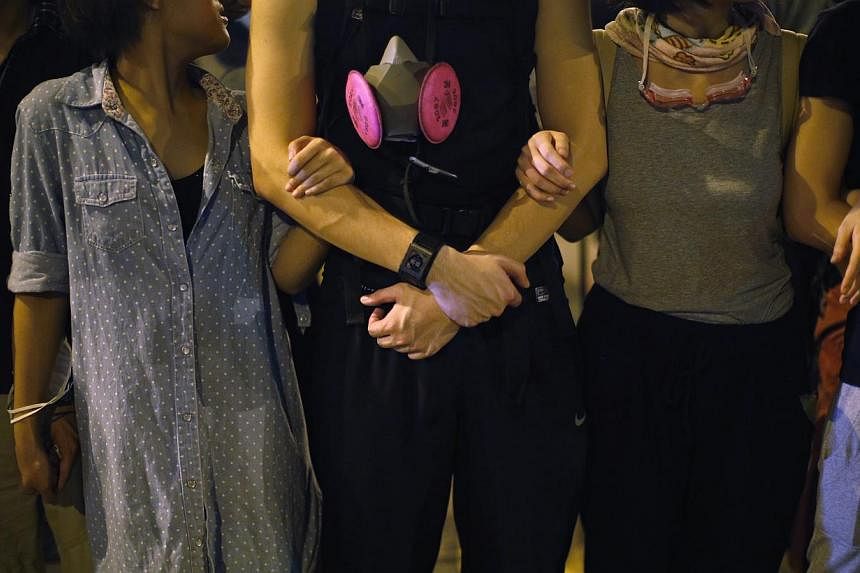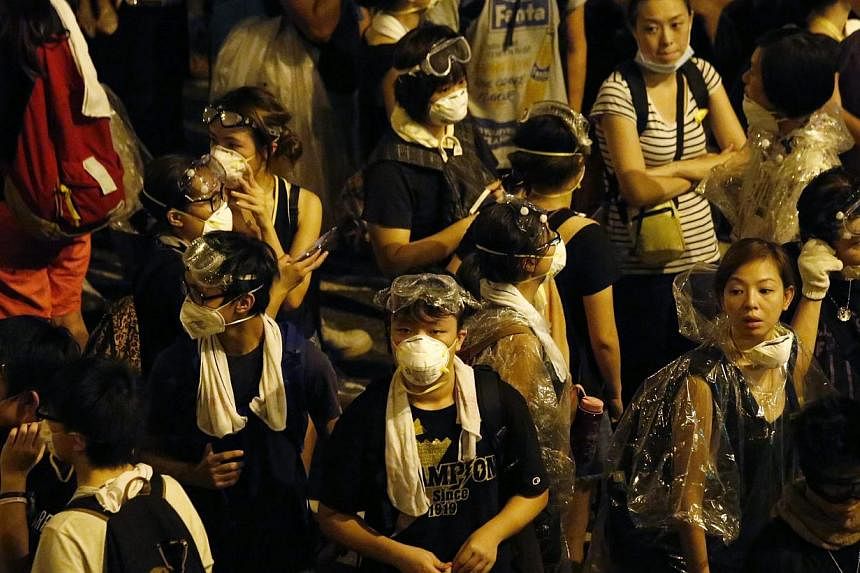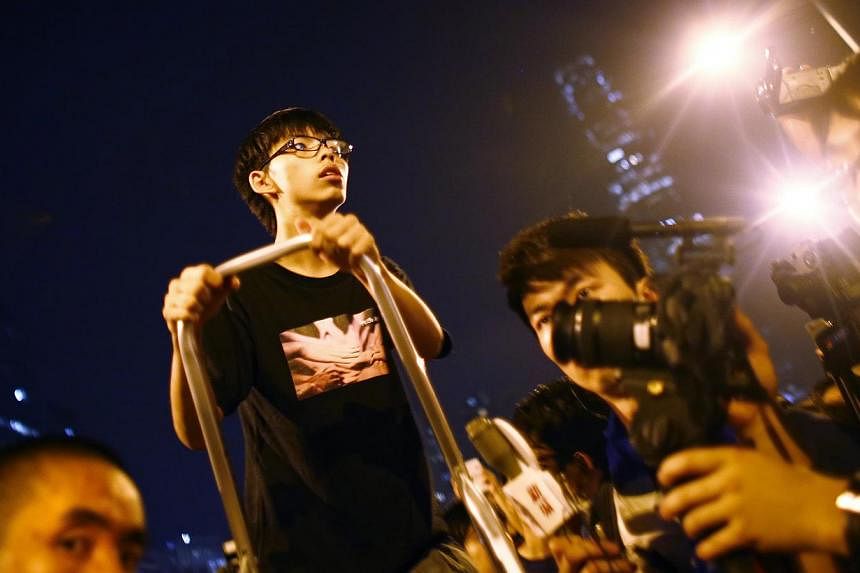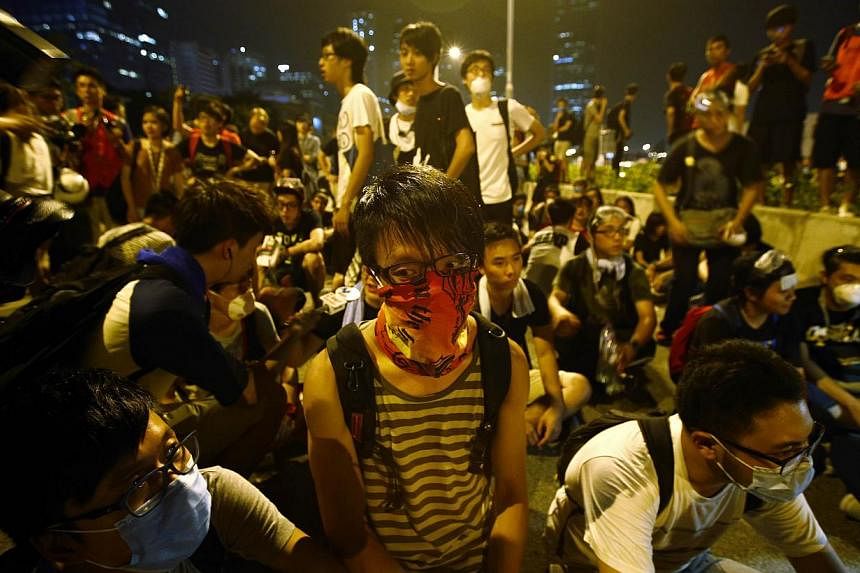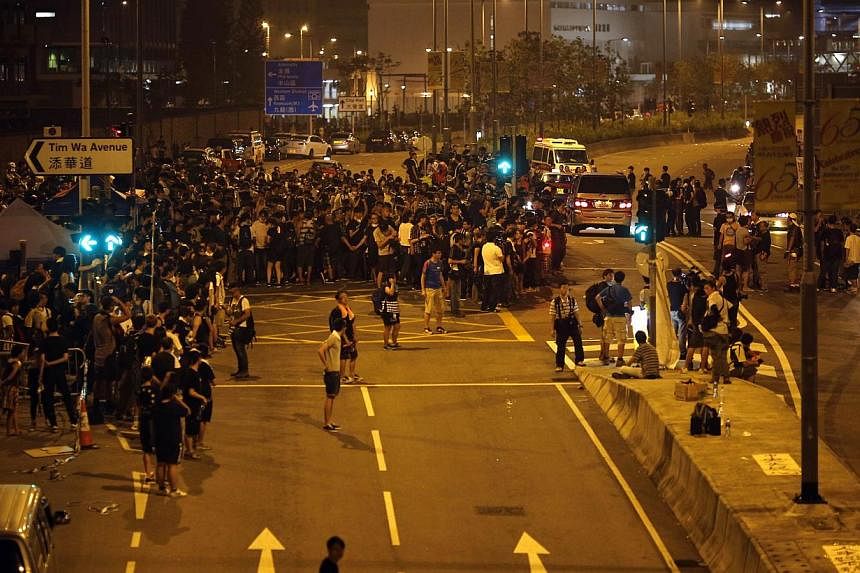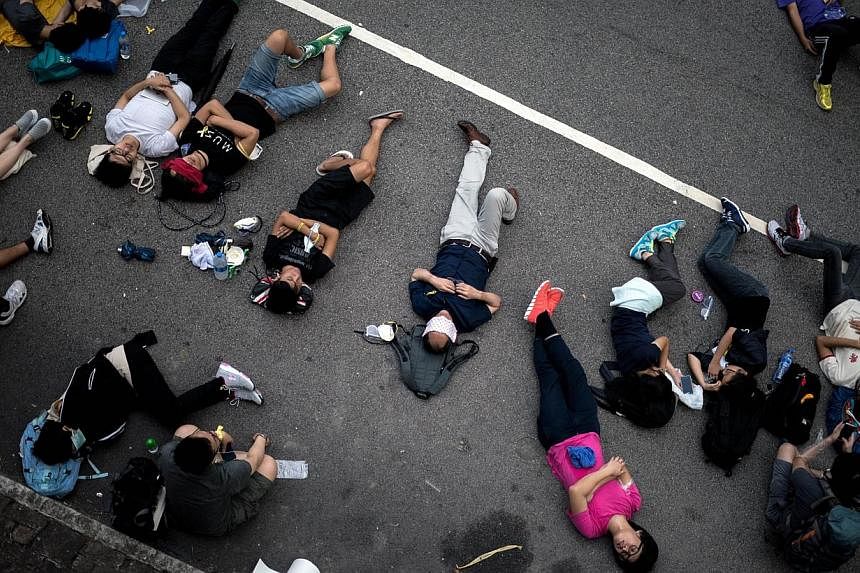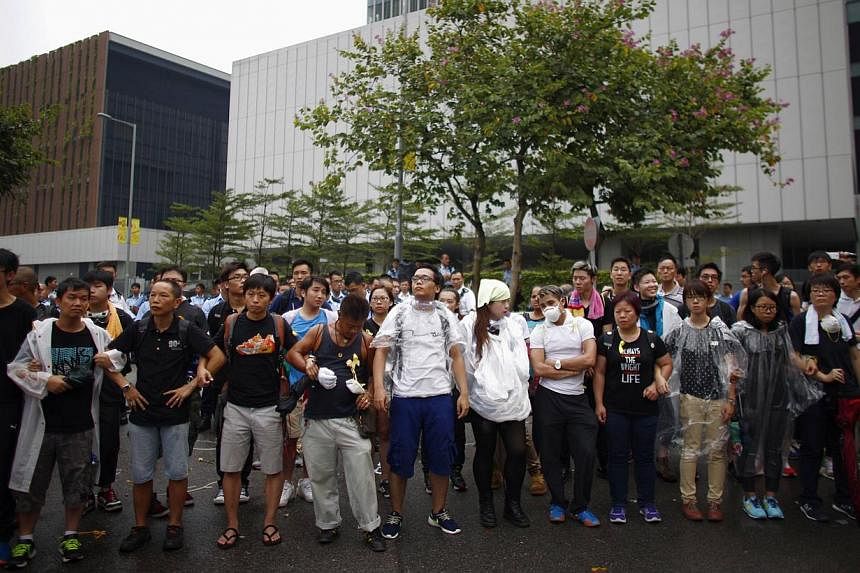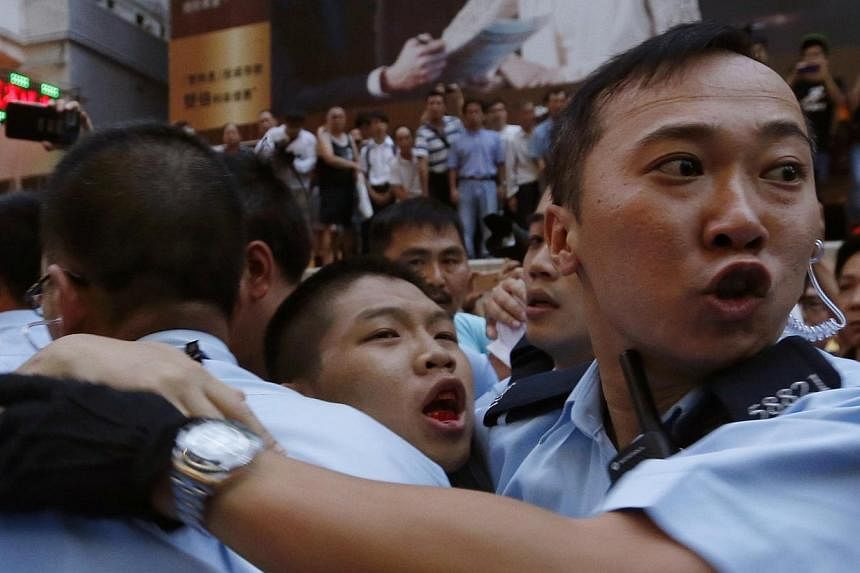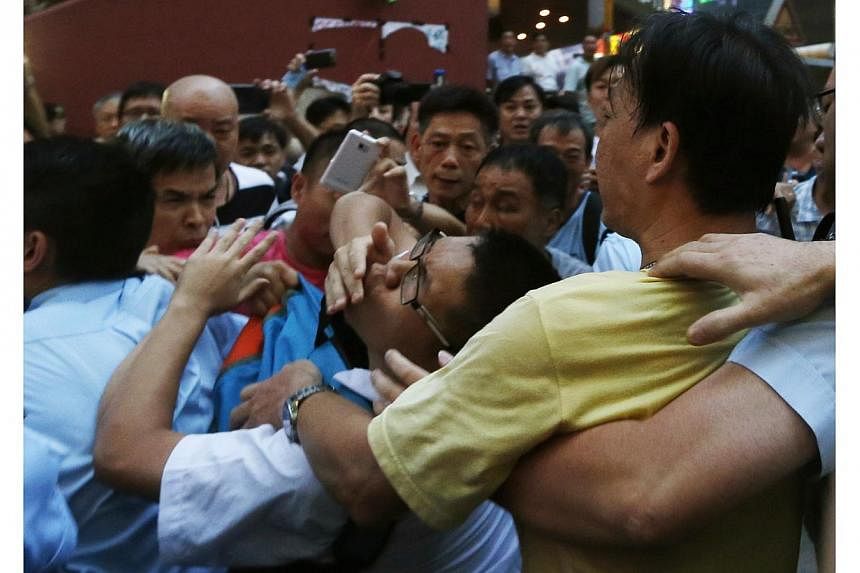THE rapprochement between the Hong Kong government and protest organisers is under threat of falling apart, with the latter saying that arrangements for talks are off if "organised attacks" on protest supporters in Mongkok are not stopped.
In a statement on Friday night, the three protest organisations - Occupy Central, the Federation of Students and Scholarism - said: "If the Hong Kong government does not immediately stop the organised attacks on Occupy Central supporters, the dialogue between the students and government will cease".
The scuffles broke out between Beijing supporters and pro-democracy protesters in Mongkok, Kowloon on Friday. A spokesman for Scholarism activist group has accused opponents of the protests as being "pro-government". "We don't know whether those people are truly against Occupy Central, or if they have other intentions."
The protest leaders and the government are supposed to meet for dialogue "as soon as possible", under an arrangement to discuss constitutional reform announced on Thursday night by Chief Executive Leung Chun Ying. Chief Secretary Carrie Lam is to represent the government. Mrs Lam has said the government has been in touch with the student organisers to arrange for a meeting.
The government has offered preliminary proposals on timing, venue, logistics and the officials attending the meeting, according to Mrs Lam, who is Hong Kong's second top official, after Mr Leung. "I hope they respond soon," she said. "The earlier the dialogue, the better we are able to manage this."
She also expressed worry about the street fights in Mongkok, saying that "these protests on the streets have a great vulnerability to turn into physical violence" between protest supporters and opponents.She said she did not want to blame the Occupy Central organisers, but added that "given the prolonged period of disruption of road blockages and traffic disruptions, sentiments are running high and there is a high chance of conflicts taking place on our streets.
"And so I make a strong appeal that they consider retreating from the scene so that law and order can be restored."
Meantime, Occupy Central organiser Benny Tai has called on protesters to return to the main protest site at Admiralty near the government headquarters so that "we can protect one another". On whether this will affect the sit-in at Mongkok, he said: "That is not the consideration now. Safety is the top priority now." He was speaking on Friday evening as fights broke out on the gritty streets of Mongkok.There, a man on megaphone shouted at Occupy Central protesters: "You don't live here. Give Mongkok back to us. If you want to occupy, occupy your own home." People fell onto the ground as they lost balance while exchanging punches.
Elsewhere, the protesters refused to budge from their blockade of Hong Kong's central government complex on Friday, forcing a temporary closure of offices there pending talks between the protesters and government officials.
Overnight, key protest organiser - Hong Kong Federation of Students - agreed to talks with Mrs Lam but vowed to keep occupying the streets until their demands are met.
"Hong Kong people shall continue (their) occupying movement until genuine universal suffrage comes to light," it said in a statement.
An arterial road between Hong Kong island and Kowloon was partially blocked on Friday morning by a small group of protesters angry at what they perceived as meagre concessions from the authorities. They were held back by other protesters who linked arms to prevent more people from spilling onto the road, an indication of the splits within the movement over how or whether to escalate actions to achieve universal suffrage.
As the city returned to work on Friday after the two-day public holidays, police also attempted to dismantle barriers installed at other protest sites on Mongkok and Causeway Bay.
Chief Executive Mr Leung, in a late-night press conference on Thursday, resisted calls for his resignation. He said instead he would appoint Ms Lam to lead talks with protest leaders, but did not say when.
Tens of thousands of people in the Chinese special administrative region had taken over major streets over the past week to oppose restrictive rules for the 2017 election of the next chief executive. Under conditions passed by China's legislature, the National People's Congress (NPC), in August, Beijing will vet the candidates vying for the post. The central Chinese government, which has given its full backing to Mr Leung, appears unlikely to compromise.
In a front-page commentary on Friday, state mouthpiece People's Daily accused the protesters of challenging the NPC. "If the minority is allowed to hijack the public opinion, it will not be conducive to the implementation of the 'one country, two systems' formula, nor Hong Kong's long-term prosperity and stability, nor smooth realisation of universal suffrage," it wrote. It stressed that there would be "no room for compromise" and the protests will ultimately fail. "From a legal perspective, if the plan for Chief Executive election doesn't get approved by the Legislative Council, it will have to continue with the current electoral rules."
The former British colony's chief executive is currently elected by a 1,200-member electoral college made of citizens and special interest groups.
Censors have scrubbed mention of the Hong Kong protests out of most mainstream and social media outlets on the mainland, save for reports on how the movement was damaging the territory. Meanwhile, Beijing has reportedly arrested more than 20 people for supporting the pro-democracy movement in Hong Kong.
Mr Leung said in his press conference that the authorities would tolerate protests as long as the protesters did not charge at police lines.
Police had used tear gas to disperse the crowds in Admiralty district on Sunday, evoking public anger and drawing more people onto the streets. Since then, they have maintained a light touch, but condemned demonstrators for blocking the area outside Mr Leung's office and even denying access to vehicles carrying food and water to their officers stationed inside. This was due to protesters' fears that the vehicles would be used to sneak in riot control equipment. According to South China Morning Post, the police had rejected protesters' suggestions to pass the food to them.
